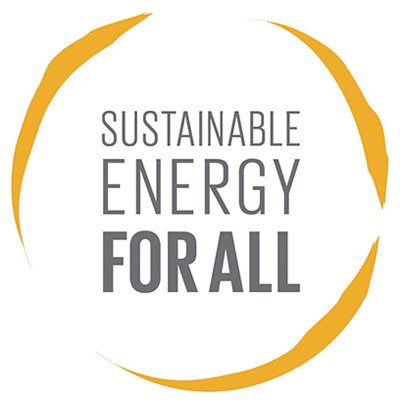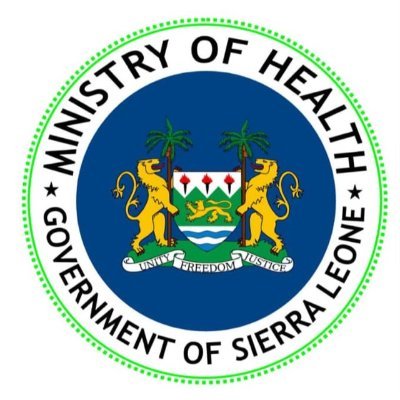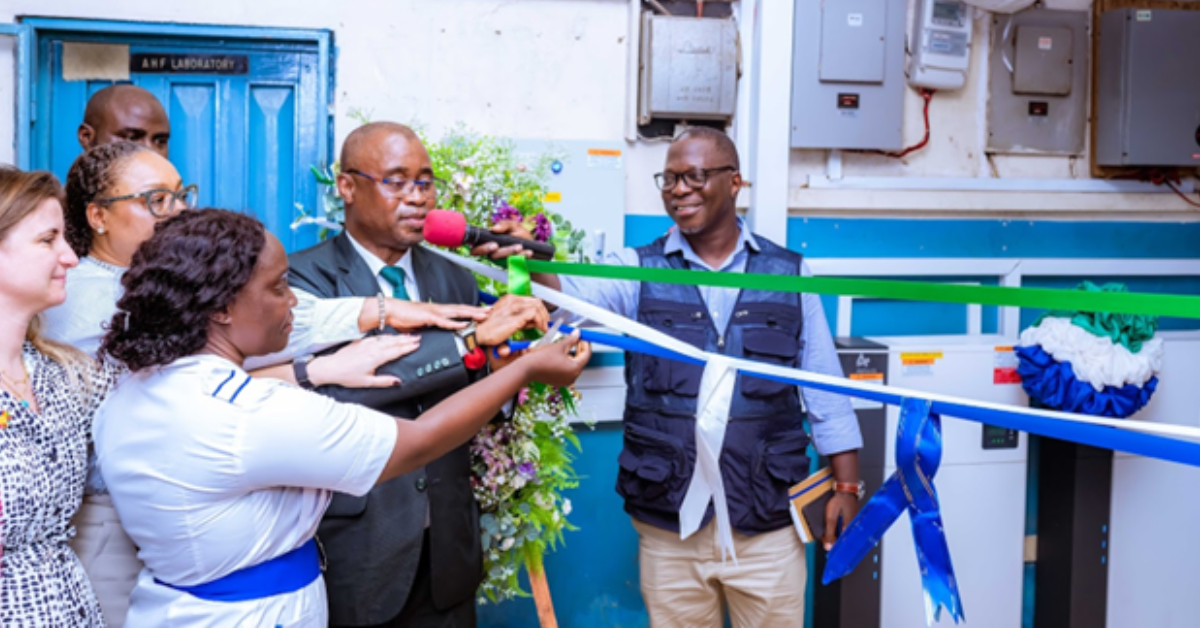In a groundbreaking development for the healthcare sector, Deputy Minister of Health, Dr. Charles Senesie, has officially commissioned the installation of solar photovoltaic (PV) systems and batteries in 25 community health centers and clinics across Sierra Leone.
The ceremony, which took place at the Jenner Wright Clinic, marks the second phase of the Sierra Leone Healthcare Electrification Project. Dr. Senesie also unveiled plans for a third phase that will bring solar power to an additional 11 hospitals, including those in Lakka, Port Loko, Makeni, and Kenema.
The newly installed solar systems will provide a reliable and sustainable energy source to health facilities that were previously without power or relied on diesel generators. Of the 25 health centers included in this phase, 18 had no existing electricity access, while others faced unreliable power from the grid.
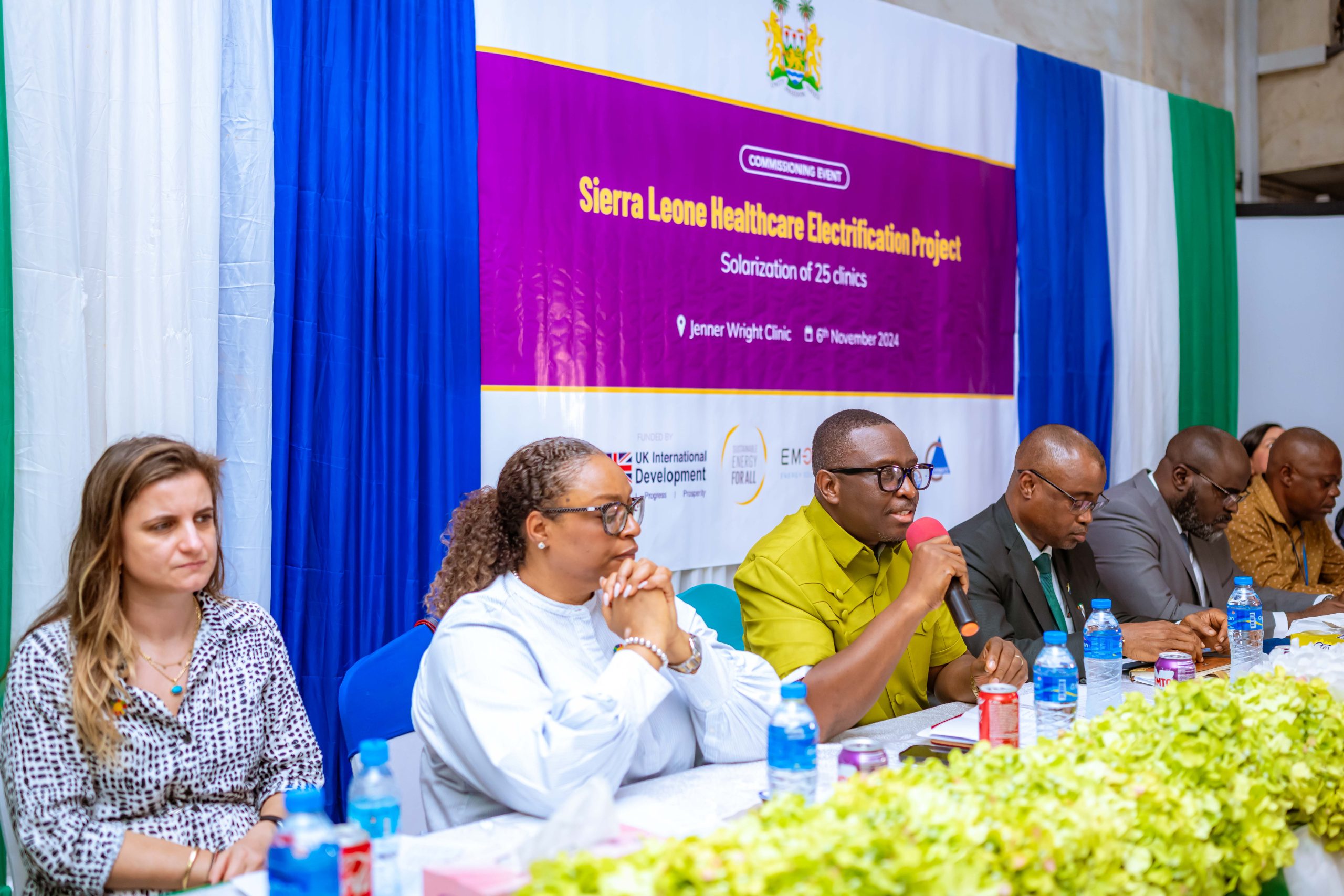
These upgrades will drastically improve healthcare delivery, allowing for 24/7 care, especially for maternal and infant health, and significantly reduce the financial burden on the government caused by fuel for diesel generators.
In his keynote address, Dr. Senesie praised the transformative impact of solar energy on healthcare, stating, “This initiative will forever change how healthcare is delivered in Sierra Leone. It’s not only about providing reliable electricity—it’s about creating a sustainable healthcare system and going green.”
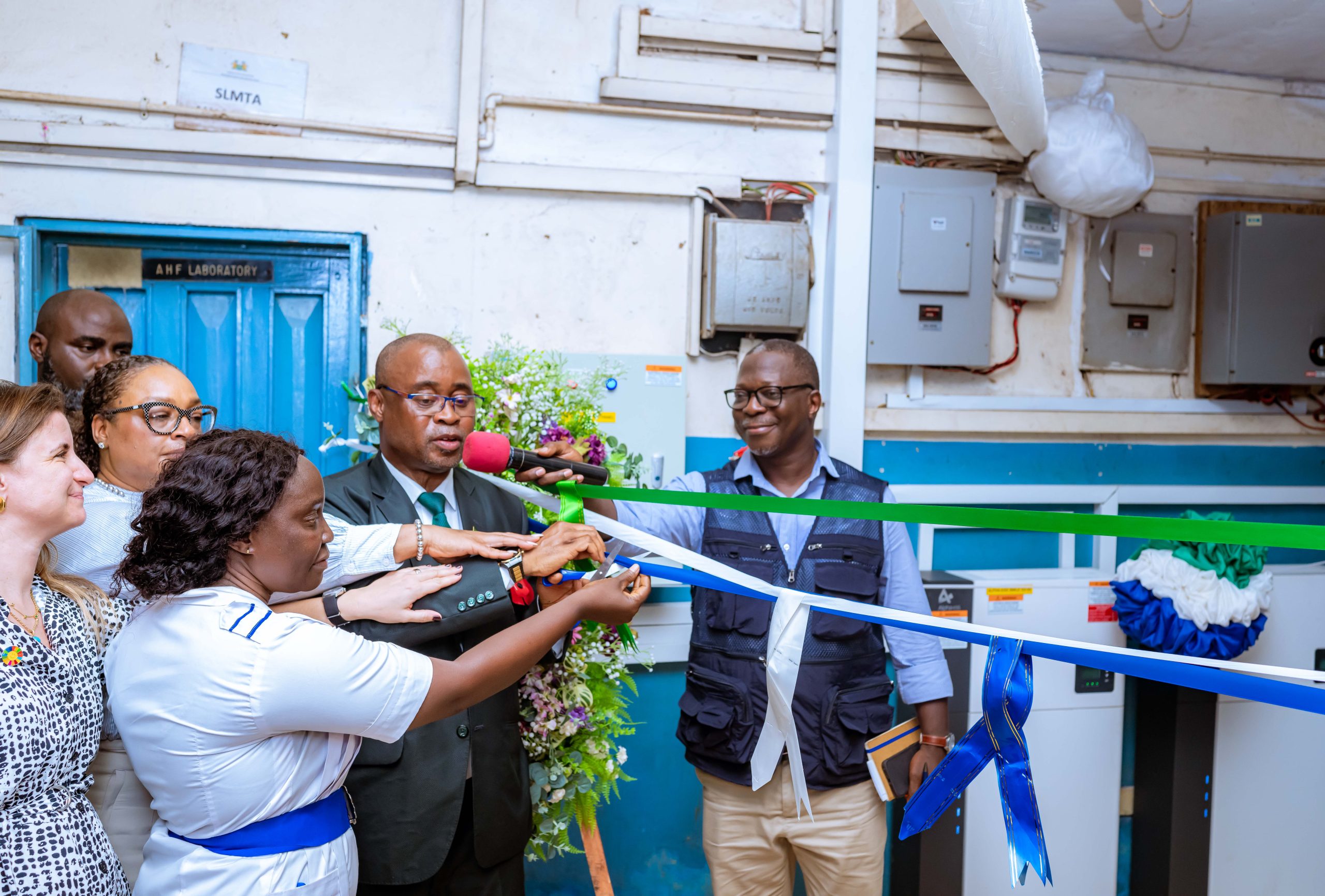
He also thanked the UK government for its generous support and Sustainable Energy for All (SEforALL) for its role in the project’s implementation.
The installation of solar systems is expected to reduce diesel generator use by 60 to 99%, helping cut down on fuel costs and greenhouse gas emissions. This follows the success of the project’s first phase, which saw six key hospitals electrified, leading to a substantial decrease in the reliance on diesel fuel.
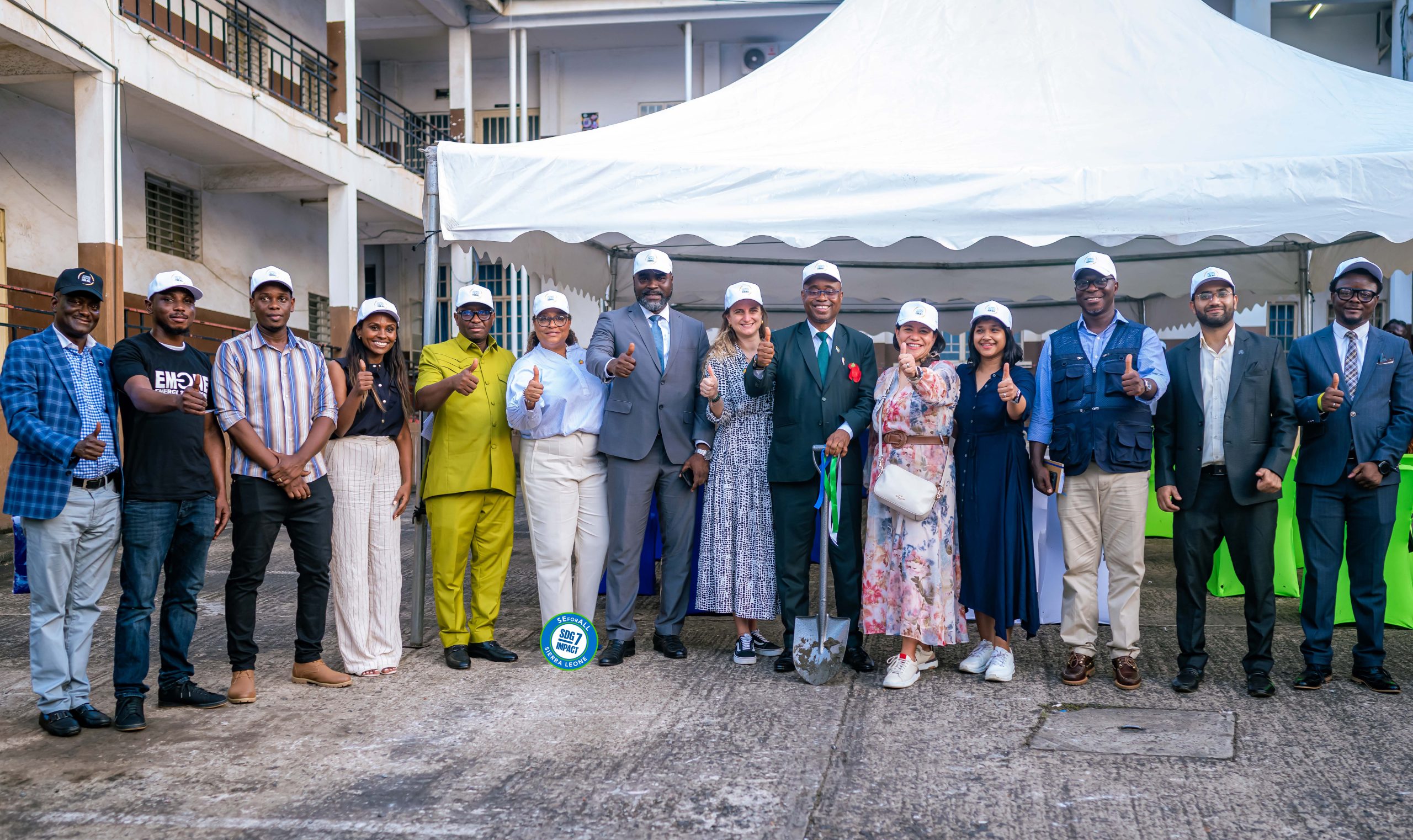
The project is part of a broader initiative to electrify Sierra Leone’s health facilities, addressing a significant gap revealed by comprehensive needs assessments in 2022, which showed that 38% of the country’s health facilities lacked reliable electricity. When completed, all three phases will provide solar power to 43 health facilities, with a combined installed capacity of 4.3 MWp.
Dr. Mustapha Kabba, Deputy Chief Medical Officer, expressed his optimism about the project, reflecting on his experience treating patients without reliable electricity at Connaught Hospital. “I look forward to the day when we no longer have to rely on generators and can fully transition to solar energy,” he said.

The Sierra Leone Healthcare Electrification Project is a joint effort by SEforALL, the Ministry of Health, and the UK government, with on-ground support from EM-ONE Energy Solutions, Tetra Tech, and CEMMATS Group Ltd.
Ngozi Beckley-Lines, SEforALL’s Sierra Leone Country Manager, emphasized the project’s wide-reaching impact, stating, “This is not just about energy—it’s about creating a safer and more reliable environment for healthcare workers, which ultimately leads to better quality care for patients.”
